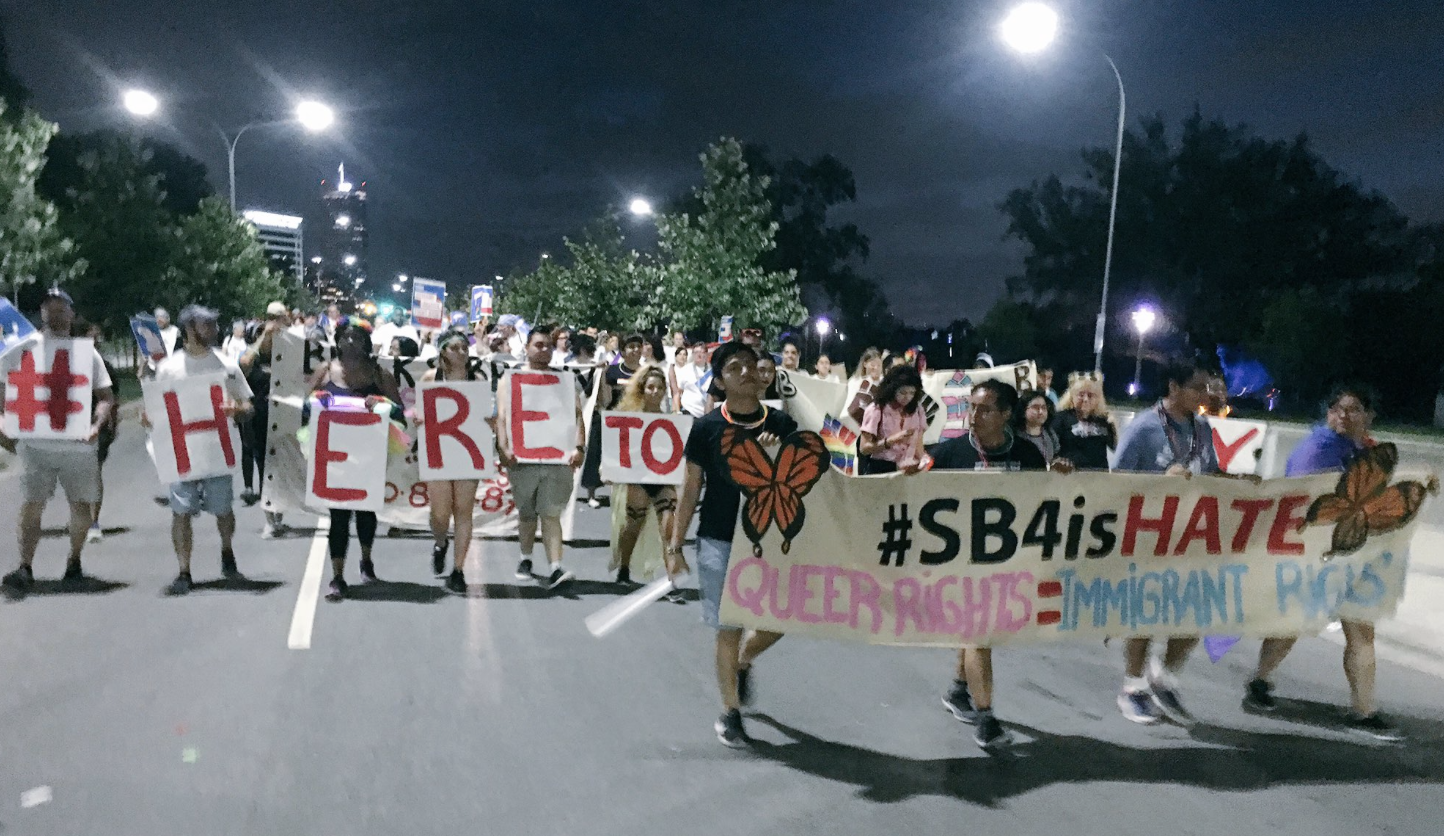Damaris Gonzalez was nine when her family came to the United States. Twelve when she learned the word "undocumented." An estimated 600,000 undocumented immigrants live in Houston. Despite their numbers, many live life in the shadows, unable to participate in much of daily life and vulnerable to exploitation and abuse.
"My life in Houston as an undocumented woman has not been the greatest," said Gonzalez. "My parents were afraid to even let me go on a school trip," for fear someone would discover her status and she would not return.
Advocates and individuals who work with undocumented immigrants said that fear has only increased in recent months at a panel discussion Wednesday co-hosted by the Kinder Institute for Urban Research and the Houston Immigration Legal Services Collaborative. Even as parts of SB4, the anti-sanctuary city bill signed into law in May, are on hold as lawsuits progress, many immigrants have been hesitant to come forward to report crimes, said Rachna Khare, the executive director of Daya, a group that works with mostly South Asian domestic violence survivors. And in the wake of Harvey, some undocumented immigrants and their families stayed in flooded homes for fear that seeking emergency shelter would put them in more danger.
When the federal government announced its intention to end the Deferred Action for Childhood Arrivals program, which offered temporary protections to some undocumented young people brought to the country as children, it sent still more fear through the community. Gonzalez said receiving DACA was a turning point in her life that allowed her to seek steady employment and learn to drive. "It opened so many doors for me," she said.
With a potential deal in the early stages from Congress that would make DACA permanent, there's some hope for individuals like Gonzalez. But DACA recipients represent a small chunk of the overall undocumented population, who continue to face challenges in Houston, even as they will be critical to the recovery and rebuilding of the city as Harvey.
"Before Harvey, we were facing an extreme shortage of workers," said Stan Marek, head of the construction company, Marek Brothers Systems, Inc. "I don’t know where we're going to get the workers, legal or undocumented, to rebuild our city." Undocumented workers are estimated to comprise half of the state's construction workforce and are vulnerable to abuse and exploitation without legal recourse, said Marek.
Given the climate in Texas with SB4 still partially enacted, Marek said after Irma, undocumented workers may think Houston is too risky. "Irma didn’t help it all," he said, "because people will go to Florida but they won't go to Texas."
Though undocumented workers who are paid cash often don't pay into Social Security, those using fake Social Security numbers do. By one estimate, undocumented immigrants contributed some $13 billion in payroll tax in 2010. "They love it," said Marek of the Social Security Administration, "because they'll probably never pay it out." Marek said he also knows of many workers who get Taxpayer Identification Numbers to pay income tax "because they want to do the right thing," That's in addition to paying taxes like sales tax.
Despite these contributions, undocumented workers have no protections. "They step on nails, they get electrocuted...they don’t get paid and who are they going to go to? The police? Forget it," said Marek. "People will take advantage of them”
Undocumented immigrants are vulnerable to exploitation beyond the workplace. Roughly 75 percent of abused immigrants, said Khara, have spouses who do not complete the proper paperwork for them. "When you're an immigrant survivor and your immigration status is tied to your abuser it's just an especially heinous kind of abuse," she said. Though the country offers a very limited number of visas for undocumented survivors of crime, Khara said they are too few and too complicated to be an option for most. And so many abused immigrants, especially undocumented immigrants, stay in abusive situations. "The fear of deportation is stronger than the fear of abuse," explained Khare.
Undocumented immigrants are particularly vulnerable in the legal system. Individuals facing deportation do not have the right to legal counsel and so many go through their proceedings without a lawyer. "Harris County is the place that deports the most immigrants in the country," said Andrea Guttin, an immigration lawyer with the Houston Immigration Legal Services Collaborative. The majority, she said, are unrepresented.
The advocacy group United We Dream, which Gonzalez is part of, was part of the push urging the city to join the lawsuit against SB4. The group also pushes for other reforms, including ending cash bail, better funding public defenders, emphasizing rehabilitation programs over jail time and considering the implications to an individual's immigration status when sentencing them in court.
"We are going to stay here, we are not going anywhere and we are going to keep on fighting for human rights and for liberation," said Gonzalez.

